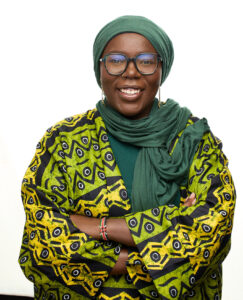Healing is a word we hear often. It’s a buzzword in feminist spaces, mental health conversations, and wellness industries. Yet, we rarely ask who gets to heal? Who defines what healing looks like? And in a world shaped by capitalism, patriarchy, and colonial legacies, do marginalized women and communities even have the luxury of healing?
Healing in a system that wounds
The demand for healing, especially for women at the grassroots, often feels like an impossible task. Women are expected to heal while still carrying the burdens of unpaid labor, economic inequality, and societal oppression. They are told to find time for self-care when they can barely afford time to recover from physical wounds, let alone psychological ones.
Capitalism does not afford women, especially those in underserved communities, the privilege of rest. A factory worker, a market vendor, a domestic worker—how do these women heal when missing a day’s work means missing a meal? How can healing be sustainable when the very structures that cause harm remain intact?
Healing and Mental Health: In mental health discourse, we often emphasize awareness, but awareness is not enough. Healing requires mental health literacy—the ability to understand mental health, recognize symptoms, and make informed decisions about care. Without literacy, healing remains inaccessible. We cannot heal what we do not understand.
Moreover, healing is not instant. Neuroscientific research shows that healing—whether emotional or physical—requires time. Neurons need to rewire, nervous systems need to regulate, and bodies need rest. Yet, oppressive systems do not give vulnerable populations the time to heal. If daily violence, economic precarity, and systemic injustices persist, can we ever truly heal? Or are we forced into an endless cycle of coping, rather than recovering?
What’s Healing in Feminist Spaces?
Feminist spaces today are increasingly centering healing, and that is powerful. But we must ask—whose healing is being prioritized? Whose language is being used to define what healing looks like?
For neurodivergent people, healing might not look like traditional therapy but rather structured support, routine, and sensory-friendly environments. For those in war-torn areas, healing doesn’t begin the moment the guns go quiet because even when the violence stops, the echoes of trauma continue to live in the body and mind long after. For millions, healing remains elusive, as mental wellbeing is often the last priority in systems built to address only visible wounds. And for women from deeply oppressed communities, healing might look like having access to knowledge and education, walking safely in public spaces, being financially independent, or finally being able to speak without fear—small acts of freedom that slowly piece them back together.
We cannot assume that one form of healing fits all. Healing must be intersectional. It must be defined by those experiencing harm—not imposed by external perspectives.
Sustaining Healing
Indigenous and ancestral healing practices are rooted in nature—herbal medicine, spiritual rituals, and land-based traditions. But if capitalism continues to destroy the planet, how can we sustain healing? If the forests that provide medicinal plants are vanishing, ancestral lands are being seized, and water is poisoned with how do we preserve traditional healing?
Healing is not just a personal journey but collective, political, and environmental. It is about reclaiming lost knowledge, resisting systems that cause harm, and creating a world where healing is not a privilege, but a right.
What If Healing Never Fully Happens?
Perhaps the pressure to heal is too much. Healing, as we currently frame it, is unattainable. And maybe, just maybe, that is okay.
Rather than forcing ourselves into an idealized version of healing, we can focus on survival, resilience, and small moments of joy and connection. Healing does not have to be an end goal—it can be a continuous process, a radical act of defiance against a world that seeks to break us.
So instead of asking, “When will I heal?” perhaps we should ask, “How can I sustain myself in a world that demands my suffering?” Healing is not a destination—it is resistance, adaptation, and refusal to be erased.
And that, in itself, is enough.
 Amisa Rashid is a renowned mental health practitioner, neuropsychologist, and mental health advocate, celebrated for her innovative contributions to mental health care in Africa. As the Founder and Executive Director of the Nivishe Foundation, she has spearheaded culturally sensitive, non-discriminative mental health interventions for underserved and marginalized communities. She is keen on Decolonizing and Africanizing mental health.
Amisa Rashid is a renowned mental health practitioner, neuropsychologist, and mental health advocate, celebrated for her innovative contributions to mental health care in Africa. As the Founder and Executive Director of the Nivishe Foundation, she has spearheaded culturally sensitive, non-discriminative mental health interventions for underserved and marginalized communities. She is keen on Decolonizing and Africanizing mental health.
